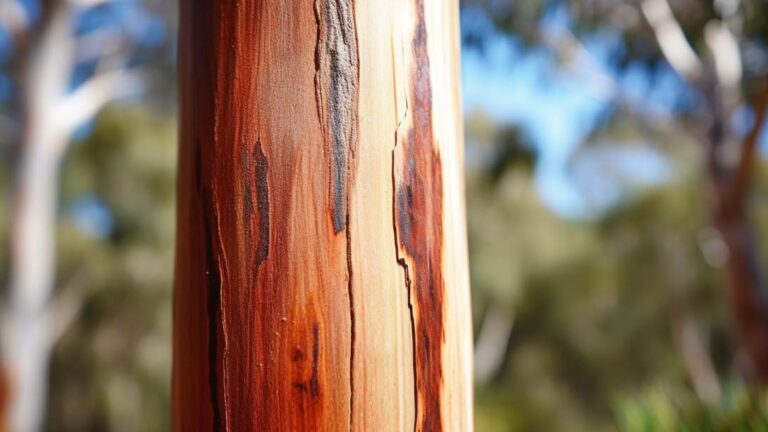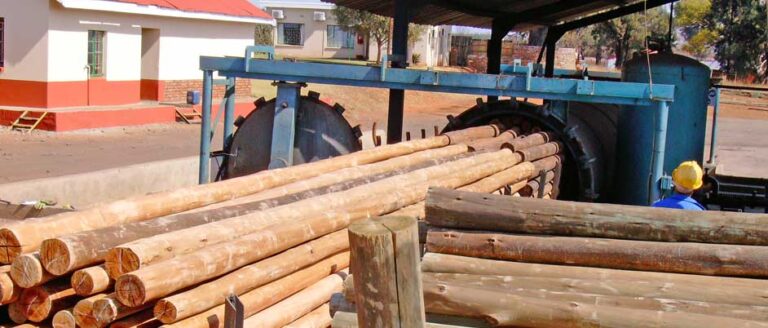Timber is a valuable and widely used material in various industries, but its durability and resistance to decay and insect damage are critical factors in determining its longevity and performance. In this context, certification plays a vital role in ensuring the quality and reliability of timber products.
One such certification is provided by the South African Wood Preservers Association (SAWPA), which focuses on assessing and endorsing the durability of timber.
According to recent data, nearly 20% of timber products on the market fail to meet the required durability standards, leading to premature decay and reduced performance. SAWPA certification serves as a crucial link between timber durability and the quality of products, providing assurance to consumers and industry professionals alike.
This certification process involves rigorous testing and evaluation to determine a timber product’s resistance to decay and insect damage, ensuring that only the highest quality products receive the SAWPA endorsement.
In addition to guaranteeing product durability, SAWPA certification also contributes to environmental sustainability by promoting the use of responsibly sourced timber.
This article explores the importance of SAWPA certification in the timber industry, its role in ensuring resistance to decay and insect damage, and the benefits it offers to both consumers and the environment.
Ultimately, understanding the significance of SAWPA certification is essential for those seeking control over the durability and performance of timber products.
Key Takeaways
- SAWPA certification guarantees the durability and resistance to decay and insect damage of timber products.
- Nearly 20% of timber products on the market fail durability standards, highlighting the importance of SAWPA certification.
- SAWPA certification promotes the use of responsibly sourced timber and encourages eco-friendly practices such as efficient resource use, waste reduction, and recycling.
- The timber industry will need to adapt to advancements in technology and new challenges, and SAWPA certification will evolve to incorporate new standards and requirements, ensuring durability, quality, and transparency in sourcing and production.
The Significance of Timber Durability
Timber durability plays a crucial role in ensuring the long-term sustainability and performance of wooden structures. The importance of timber durability lies in its ability to resist decay, insect infestation, and weathering. A durable timber ensures that a structure remains structurally sound and aesthetically pleasing over time. It minimizes the need for frequent maintenance and replacement, thereby reducing costs and environmental impact.
Timber durability is influenced by various factors, including wood species, moisture content, and treatment methods. Proper selection of timber species, such as naturally durable ones like teak or cedar, can significantly enhance the durability of wooden structures. Additionally, appropriate moisture management and treatment with preservatives can further improve the longevity of timber.
Understanding sawpa certification is essential in ensuring the use of durable timber in construction projects.
Understanding SAWPA Certification
The understanding of SAWPA certification involves a comprehensive examination of the criteria and standards set forth by the organization. This certification process ensures that timber products meet industry standards for durability and resistance to decay and insect damage.
To engage the audience, the following four items highlight key aspects of SAWPA certification:
- Evaluation of treatment processes: SAWPA certification assesses the effectiveness of timber treatment methods to ensure that they meet the required standards for durability.
- Quality control measures: The certification process involves rigorous quality control checks to guarantee that the timber products consistently meet the specified criteria.
- Compliance with regulations: SAWPA certification ensures that timber products adhere to relevant industry regulations and standards, providing reassurance to consumers.
- Ongoing monitoring and review: The certification includes regular monitoring and review processes to ensure that certified timber products continue to meet the required standards.
Understanding SAWPA certification is crucial for ensuring resistance to decay and insect damage, as it guarantees that the timber products have undergone the necessary treatment processes and meet industry standards.
Ensuring Resistance to Decay and Insect Damage
To verify the veracity of a theory, empirical research should be conducted to uncover a deeper understanding of how resistance to decay and insect damage can be ensured.
Resistance to fungal decay and insect damage is a crucial aspect of timber durability. To achieve this, several factors must be considered in the manufacturing process.
The selection of appropriate timber species that naturally possess resistance to decay and insect damage is paramount. Additionally, the use of preservatives can enhance the timber’s resistance. These preservatives should be carefully chosen to ensure effectiveness and minimize environmental impact.
Proper treatment and maintenance of the timber products are also essential to prolong their resistance. By ensuring resistance to decay and insect damage, SAWPA certification guarantees the production of insect-resistant timber products. This certification provides the assurance that the timber products meet specific standards and will maintain their durability over time.
Moving forward, it is important to understand the benefits of SAWPA certified timber products.
The Benefits of SAWPA Certified Timber Products
One of the advantages of using SAWPA certified timber products is the assurance of long-lasting resistance to decay and insect damage. This certification ensures that the timber has been treated with preservatives that effectively protect against deterioration caused by fungi and insects.
The benefits of SAWPA certified timber products can be summarized in two sub-lists:
- Enhanced durability:
- SAWPA certified timber products have undergone rigorous testing to ensure their resistance to decay and insect damage.
- These products are treated with preservatives that penetrate deep into the wood, providing long-lasting protection against decay and insect infestation.
- Extended lifespan:
- The durability of SAWPA certified timber products translates into a longer lifespan, reducing the need for frequent replacements.
- This not only saves costs but also minimizes the environmental impact associated with timber production.
By choosing SAWPA certified timber products, consumers can benefit from their enhanced durability and extended lifespan. This, in turn, contributes to the overall sustainability of timber use.
Wondering why SAWPA Certification matters? Gain comprehensive insight into its importance. Find Out More!
SAWPA Certification and Environmental Sustainability
A study exploring the correlation between SAWPA certified timber products and environmental sustainability is needed to determine the validity of claims made regarding their impact on the environment.
SAWPA certification plays a crucial role in promoting eco-friendliness and resource conservation in the timber industry. By adhering to strict standards and guidelines, SAWPA certified timber products are expected to have a reduced environmental footprint compared to non-certified alternatives.
This certification ensures that the timber is sourced from sustainably managed forests, where responsible harvesting practices are employed to minimize negative impacts on the ecosystem. Additionally, SAWPA certification encourages the efficient use of resources, promoting waste reduction and recycling initiatives.
By incorporating these eco-friendly practices, SAWPA certified timber products contribute to the overall goal of environmental sustainability. However, further research is necessary to quantify and validate the extent of their positive environmental impact.
Transitioning into the subsequent section about the future of SAWPA certification in the timber industry, it is essential to explore potential advancements and improvements in certification processes.
The Future of SAWPA Certification in the Timber Industry
SAWPA Certification has been vital in promoting environmental sustainability within the timber industry. However, its importance extends beyond just environmental concerns. Looking towards the future, SAWPA Certification is expected to play a crucial role in shaping the industry’s developments and adaptations. As technology advances and new challenges arise, the timber industry will need to continually adapt to meet the demands of sustainability, efficiency, and durability. SAWPA Certification will likely evolve to incorporate new standards and requirements to address these emerging issues. Additionally, industry adaptations such as the implementation of digital tracking systems and advanced testing techniques may become more prevalent. These developments will not only ensure the durability and quality of timber products but also provide consumers with greater control and transparency over the sourcing and production processes.
| Future Developments | Industry Adaptations |
|---|---|
| Incorporation of new standards and requirements | Implementation of digital tracking systems |
| Advances in technology and testing techniques | Greater control and transparency for consumers |










